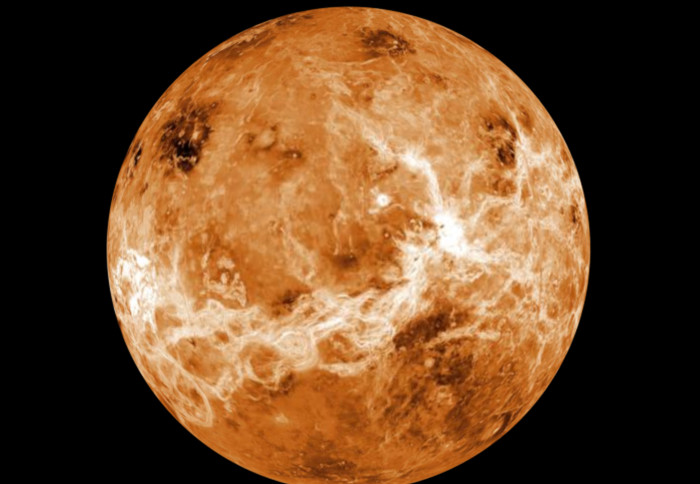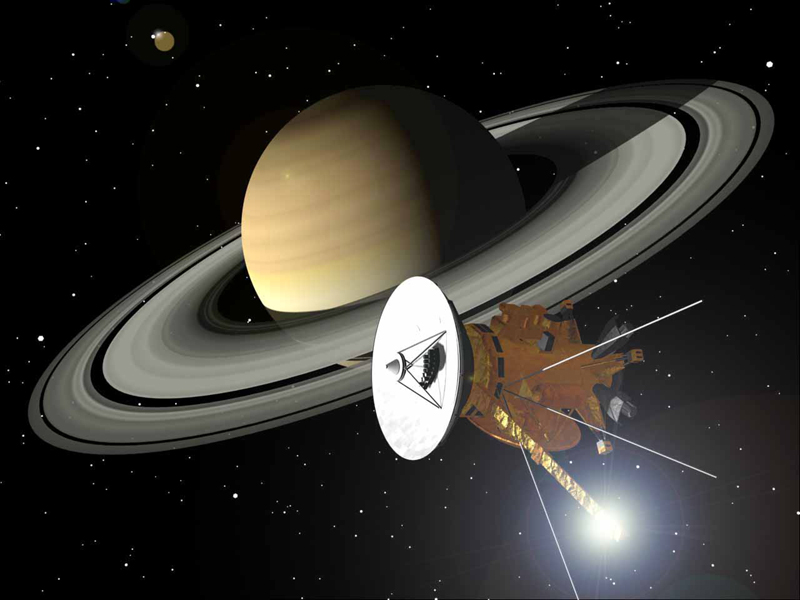The New Martians – book review

The New Martians is a novel that takes us forward to the year 2035 when the first manned Mars expedition is on its way home. The crew is a bit unfocused, finding going home harder than getting to Mars and exploring it. When dangerous systems malfunctions begin to occur, things get worse. Is there a fatal flaw in the computer controlling the ship's systems? Or is it sabotage?
Although I don't normally review science fiction on the Astronomy site, Nick Kanas's book is the first in a Springer “Science and Fiction” series. It's a “scientific novel” in which the story is firmly rooted in some aspect of current science, which is quite an interesting idea.
As part of a course, I once wrote an extended essay on the hazards of space travel. My conclusion was that the three aspects posing the greatest danger were: radiation, the physical effects of prolonged microgravity, and the psychological effects of long deep space missions.
Nick Kanas, the author of The New Martians, singled out these three hazards as potential “show-stoppers”. He's well qualified to look at the third one, and that's the main theme of the book. Besides being a keen amateur astronomer, he's also a specialist in space psychology. Now an Emeritus Professor of Psychiatry at the University of California, San Francisco, he has been the Principal Investigator for a number of NASA-funded research projects on psychological aspects of space travel.
The good
The author has incorporated the current thinking on a manned Mars mission, which makes the background more realistic. For example, the year 2035 is one in which Earth and Mars are at their closest. The international political dimension is also involved in the choice of the crew. The psychological issues they face come from Kanas's wide knowledge.
One of the good points is the brief description of what the astronauts faced as celebrities on their return to Earth. And there's a little surprise in the ending that I won't spoil for you.
The book is in two parts. Part I is the “novel”, though at less than a hundred pages, it's more of a novella. Part II is “The Science behind the Fiction” which looks at what we know about the issues raised by the story. I found this part fascinating. It made me want to read more about about the topic, and an extensive reference list makes this possible.
The not-so-good
I have a small criticism of the way in which the author rather casually dismissed exposure to “high radiation” as something “which can be minimized by proper shielding of the space vehicle”. Interestingly, a report released in April 2014 suggests that galactic cosmic ray radiation is extremely dangerous and very difficult to shield against. Martian explorers would be particularly vulnerable, especially since they would be exposed for so long.
However my real objection to the novel(la) is that as a work of fiction, it didn't engage or excite me, despite my interest in the subject. It was a brave attempt, but obviously not the work of a novelist.
The book tells us all about the characters. I couldn't really warm to them because I couldn't believe in them. There's a lot of description, and the dialog tends to be stilted. The characters don't so much speak to each other as make little speeches. It almost seems as though they make speeches to themselves too. Here, for example, is the commander musing about how he
A writer brings the reader into the story by letting the story and characters lead. Who and what they are comes out in their speech, actions, reactions and interactions. The potted biographies and wooden dialog distanced me from the story. It was a report not a novel(la). The science led the story, but it should have emerged from it.
The alien presence seemed alien in every sense. I felt that its intrusions into the story were even less believable than the rest of the characters. By the way, mentioning the alien isn't a spoiler. We know about it from the very start of the story – it gets the prologue. In fact, it might have made a more compelling story if the alien hadn't been so obvious. What if the reader weren't sure whether a hostile alien presence was behind the ship's problems or whether a crew member was having a serious psychotic breakdown? This would also have made the surprise ending stronger.
I don't like to rubbish a book into which so much effort has been poured. The factual part, as I've said, is well worth reading. The scientific issues are relevant to the debate on human space flight. The book raises some thought-provoking questions. But I read a lot of fiction and I really don't think the novel itself would have found a publisher. It was a worthy attempt, but a bit flat. I wouldn't pay full price for it (£15 on Amazon UK), but if you find it at a reasonable price, it's worth a look.
Nick Kanas The New Martians: A Scientific Novel, Springer, 2013
Note: I read an online copy of the book to which the publishers allowed access for review purposes.
Although I don't normally review science fiction on the Astronomy site, Nick Kanas's book is the first in a Springer “Science and Fiction” series. It's a “scientific novel” in which the story is firmly rooted in some aspect of current science, which is quite an interesting idea.
As part of a course, I once wrote an extended essay on the hazards of space travel. My conclusion was that the three aspects posing the greatest danger were: radiation, the physical effects of prolonged microgravity, and the psychological effects of long deep space missions.
Nick Kanas, the author of The New Martians, singled out these three hazards as potential “show-stoppers”. He's well qualified to look at the third one, and that's the main theme of the book. Besides being a keen amateur astronomer, he's also a specialist in space psychology. Now an Emeritus Professor of Psychiatry at the University of California, San Francisco, he has been the Principal Investigator for a number of NASA-funded research projects on psychological aspects of space travel.
The good
The author has incorporated the current thinking on a manned Mars mission, which makes the background more realistic. For example, the year 2035 is one in which Earth and Mars are at their closest. The international political dimension is also involved in the choice of the crew. The psychological issues they face come from Kanas's wide knowledge.
One of the good points is the brief description of what the astronauts faced as celebrities on their return to Earth. And there's a little surprise in the ending that I won't spoil for you.
The book is in two parts. Part I is the “novel”, though at less than a hundred pages, it's more of a novella. Part II is “The Science behind the Fiction” which looks at what we know about the issues raised by the story. I found this part fascinating. It made me want to read more about about the topic, and an extensive reference list makes this possible.
The not-so-good
I have a small criticism of the way in which the author rather casually dismissed exposure to “high radiation” as something “which can be minimized by proper shielding of the space vehicle”. Interestingly, a report released in April 2014 suggests that galactic cosmic ray radiation is extremely dangerous and very difficult to shield against. Martian explorers would be particularly vulnerable, especially since they would be exposed for so long.
However my real objection to the novel(la) is that as a work of fiction, it didn't engage or excite me, despite my interest in the subject. It was a brave attempt, but obviously not the work of a novelist.
The book tells us all about the characters. I couldn't really warm to them because I couldn't believe in them. There's a lot of description, and the dialog tends to be stilted. The characters don't so much speak to each other as make little speeches. It almost seems as though they make speeches to themselves too. Here, for example, is the commander musing about how he
had noticed a growing ennui among the . . . crew members. . . [For example] Julienne . . . was responsible for monitoring [the system] which controlled all the life support and mission operation computer programs in their Earth Return Vehicle. But since everything was working nominally on the ERV, with no appreciable deviations from baseline or normal levels, she had little to do but read her manuals. And of course, do her knitting! John had always thought this to be an incongruous activity for the attractive French woman with a double Ph.D. In Computer Sciences and Systems Engineering . . .The whole paragraph is 25 lines long.
A writer brings the reader into the story by letting the story and characters lead. Who and what they are comes out in their speech, actions, reactions and interactions. The potted biographies and wooden dialog distanced me from the story. It was a report not a novel(la). The science led the story, but it should have emerged from it.
The alien presence seemed alien in every sense. I felt that its intrusions into the story were even less believable than the rest of the characters. By the way, mentioning the alien isn't a spoiler. We know about it from the very start of the story – it gets the prologue. In fact, it might have made a more compelling story if the alien hadn't been so obvious. What if the reader weren't sure whether a hostile alien presence was behind the ship's problems or whether a crew member was having a serious psychotic breakdown? This would also have made the surprise ending stronger.
I don't like to rubbish a book into which so much effort has been poured. The factual part, as I've said, is well worth reading. The scientific issues are relevant to the debate on human space flight. The book raises some thought-provoking questions. But I read a lot of fiction and I really don't think the novel itself would have found a publisher. It was a worthy attempt, but a bit flat. I wouldn't pay full price for it (£15 on Amazon UK), but if you find it at a reasonable price, it's worth a look.
Nick Kanas The New Martians: A Scientific Novel, Springer, 2013
Note: I read an online copy of the book to which the publishers allowed access for review purposes.
You Should Also Read:
Packing for Mars - book review
Thanksgiving in Space
Ten Fascinating Facts about Space Exploration

Related Articles
Editor's Picks Articles
Top Ten Articles
Previous Features
Site Map
Content copyright © 2023 by Mona Evans. All rights reserved.
This content was written by Mona Evans. If you wish to use this content in any manner, you need written permission. Contact Mona Evans for details.







